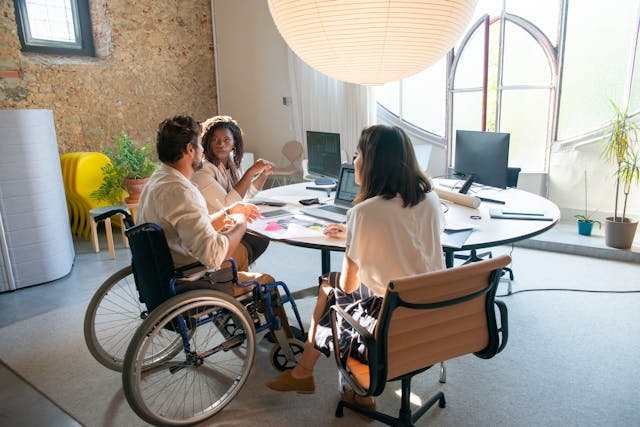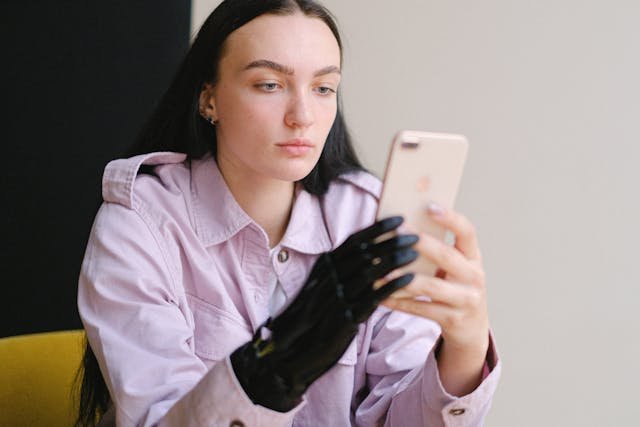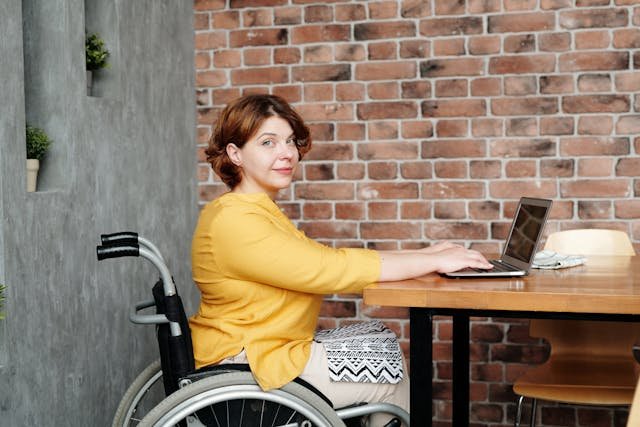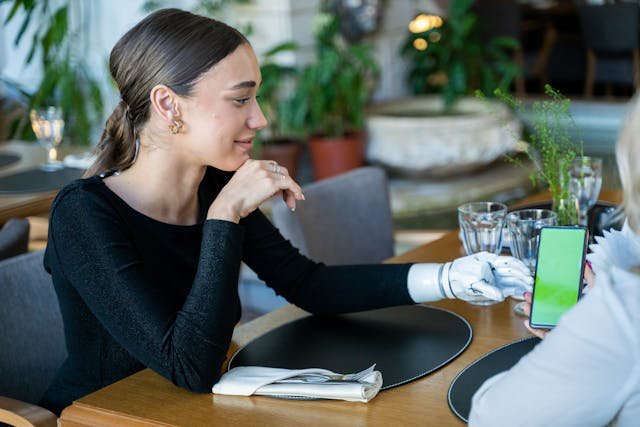Social media has transformed how we see the world. It has given people a platform to share their stories, challenge stereotypes, and build communities. Among those leading this change are social media influencers with disabilities, who are using their platforms to educate, inspire, and reshape public perceptions of disability.
For years, traditional media has often portrayed disability through pity, inspiration tropes, or medical struggles. But now, through platforms like Instagram, YouTube, TikTok, and Twitter, disabled influencers are taking control of their own narratives. They are showing that disability is not a limitation—it is just another way of experiencing life.
This article explores how social media influencers with disabilities are changing perceptions, breaking stereotypes, and making the digital world more inclusive.
How Social Media Gives Disabled Voices a Platform
Traditional media has often failed to accurately and respectfully represent people with disabilities. Social media has given them a space where they can share their experiences in an unfiltered, direct way.
Challenging the “Pity Narrative” and Redefining Disability

For years, disability in media was presented as either a tragedy or an inspiration. Characters with disabilities were often shown as victims, dependent on others, or defined by their struggles. While stories of perseverance are important, they don’t represent the full, complex lives of disabled individuals.
Social media influencers have reclaimed the narrative, showing that they are not people to be pitied—they are athletes, entrepreneurs, parents, artists, and professionals. They talk about traveling, dating, working, and enjoying life, proving that disability is not something to be “overcome”—it is simply part of who they are.
By normalizing disability, these influencers help their audiences see beyond stereotypes and treat disabled individuals as equals, rather than as exceptions or inspirations.
Creating an Inclusive Community for Disabled and Non-Disabled Followers
One of the biggest impacts of social media is that it has brought disabled individuals together, creating a space where they can share experiences, support one another, and learn from different perspectives.
Before social media, many disabled individuals felt isolated, especially in places where accessibility and inclusivity were lacking. Now, they can connect with people who share similar experiences, whether it’s about using a prosthetic limb, navigating public spaces in a wheelchair, or finding accessible travel options.
Non-disabled followers also benefit from these communities, as they gain insight into the real challenges and successes of disabled individuals. This exposure helps reduce ignorance, increase empathy, and encourage inclusivity in everyday life.
Providing Real-Life Representation That Mainstream Media Lacks
Representation matters. When people see someone who looks like them, lives like them, or shares their experiences, they feel more seen, understood, and validated.
Social media has allowed people with disabilities to represent themselves in ways mainstream media has failed to do. Instead of waiting for a movie or TV show to tell their stories, they are creating their own content, building audiences, and proving that disability is not a barrier to success.
From fashion influencers who showcase adaptive clothing to athletes who prove that sports can be for everyone, these creators are expanding what disability representation looks like.
Breaking Stereotypes: What Influencers with Disabilities Are Teaching the World
Social media influencers are challenging outdated assumptions and showing the world that disability is not a weakness, but a part of life that can be embraced.
1. Disability Is Not a Tragedy—It’s Just a Different Way of Living

For a long time, disability was seen as something sad, something that needed fixing. Many social media influencers are challenging this perception by showing that they live happy, fulfilling lives.
They post about traveling the world, running businesses, competing in sports, and raising families. They prove that disability is not a tragedy—it’s just one aspect of a person’s identity.
By sharing daily experiences—both the struggles and the joys—they remind the world that disabled individuals don’t exist to be pitied or “inspirational” for doing basic tasks. They are just living their lives, like everyone else.
2. Prosthetics and Assistive Devices Are Tools, Not Limitations
Prosthetic limbs, wheelchairs, hearing aids, and other assistive devices are often viewed as symbols of limitation. Social media influencers are flipping this idea, showing how these tools enable independence and enhance their lives.
From bionic arm users showcasing their advanced prosthetic functions to wheelchair users demonstrating accessible fitness routines, these creators are educating the public on how assistive technology improves mobility, function, and freedom.
By highlighting real innovations in prosthetics and adaptive equipment, they are also encouraging better design, increased accessibility, and greater investment in disability-friendly products.
3. Disability Inclusion Is Good for Business and Society
Many brands have historically overlooked disabled consumers, assuming that they are not part of their target market. However, influencers with disabilities are changing this misconception, proving that disabled individuals are active consumers who deserve to be represented in fashion, beauty, tech, and fitness industries.
Brands that partner with disabled influencers are seeing higher engagement and stronger brand loyalty. Consumers today want to support businesses that prioritize diversity and inclusivity, and working with disabled influencers is a step toward making representation the norm, not the exception.
4. Disabled People Are Not “Inspiration Props”
Many disabled influencers push back against the “inspiration porn” narrative—a term used to describe how disabled people are often framed as motivational stories for non-disabled audiences.
Social media has been flooded with viral posts like “If they can do it, what’s your excuse?” or “This disabled person got a job—so inspiring!” While well-intentioned, these narratives reduce disabled people to objects of inspiration rather than individuals with their own goals, challenges, and identities.
How Influencers Are Changing This:
- Calling out ableist language in viral videos and memes that frame disabled people as “brave” for doing everyday tasks.
- Sharing realistic experiences, including both successes and struggles, to show that disabled people don’t exist to make others feel better about their own lives.
- Encouraging genuine inclusion, not tokenism, by showing that disability is not a limitation but a different way of navigating the world.
By speaking up, influencers are teaching the world that disabled people are not here to inspire non-disabled individuals—they are here to live their lives fully, just like everyone else.
5. Adaptive Sports and Fitness Are for Everyone

For a long time, people assumed that disabled individuals couldn’t be active, play sports, or work out. But influencers with disabilities are proving otherwise.
Athletes and fitness influencers who use prosthetics, wheelchairs, or adaptive sports equipment are showing that the fitness industry needs to be more inclusive.
How Influencers Are Changing This:
- Breaking the myth that disability means weakness by sharing workouts, marathons, and weightlifting routines adapted for different abilities.
- Highlighting the need for accessible gyms, adaptive sports leagues, and fitness brands that cater to disabled individuals.
- Encouraging non-disabled trainers and coaches to educate themselves on working with disabled clients, making the fitness world more inclusive.
By making fitness content more accessible, these influencers are inspiring gyms, trainers, and sports brands to rethink how they engage with the disabled community.
6. Disability Representation in Fashion and Beauty Matters
For years, the fashion and beauty industries largely ignored disabled consumers. They rarely featured models with prosthetics, wheelchair users, or people with visible disabilities in campaigns. But social media influencers are forcing these industries to change.
How Influencers Are Changing This:
- Promoting adaptive fashion, like easy-to-wear clothing with magnetic closures, one-handed zippers, and wheelchair-friendly designs.
- Working with major beauty brands to showcase makeup techniques for people with limited mobility or visual impairments.
- Modeling in fashion campaigns and walking the runway, proving that disability should be seen as part of human diversity, not something to hide.
Big brands like Tommy Hilfiger, Nike, and L’Oréal have already begun working with disabled influencers, and this movement is only growing stronger.
7. Disabled Travelers Are Proving That the World Needs More Accessibility
Many people assume that traveling with a disability is impossible. But travel influencers with disabilities are proving otherwise and exposing accessibility gaps in the tourism industry.
How Influencers Are Changing This:
- Sharing tips on navigating airports, hotels, and cities with a disability, making travel more accessible for others.
- Highlighting destinations with good accessibility and calling out places that need improvement.
- Partnering with airlines, hotels, and travel companies to push for better wheelchair-friendly transportation, step-free accommodations, and inclusive experiences.
By showcasing both the joys and challenges of traveling with a disability, these influencers are encouraging the tourism industry to become more inclusive.
8. Parenting and Relationships Are Just as Important in Disability Conversations
Society often assumes that disabled people can’t be parents, partners, or have fulfilling relationships. Social media influencers are breaking this myth by sharing their personal journeys of love, dating, marriage, and parenthood.
How Influencers Are Changing This:
- Showing that disabled parents can raise happy, healthy children, challenging the misconception that they are incapable of caregiving.
- Discussing dating and relationships openly, proving that disability does not make someone less deserving of love.
- Promoting representation of disabled families in media, pushing for more TV shows, movies, and books that feature disabled parents and couples.
By normalizing disability in family and relationship content, influencers are changing the way the world views disabled individuals in personal and romantic spaces.
The Business Impact of Disability Representation on Social Media

As disabled influencers grow their platforms, businesses and brands are taking notice. Companies that embrace disability representation in their marketing, hiring, and product development are seeing real benefits.
1. Brands That Work with Disabled Influencers See Higher Engagement
Consumers today want authenticity and diversity. Brands that collaborate with influencers with disabilities gain trust and credibility, especially among audiences that value inclusivity.
For example, Nike’s adaptive shoes, L’Oréal’s accessible beauty tools, and Tommy Hilfiger’s adaptive fashion line have all gained popularity because they worked with real disabled influencers who showcased the practical benefits of these products.
2. Social Media Is Driving More Inclusive Product Innovation
Through platforms like Instagram and TikTok, influencers are directly influencing product design. Companies are listening to feedback from disabled influencers to create:
- More accessible clothing and footwear
- Better-designed prosthetic limbs and assistive devices
- User-friendly beauty and tech products for people with limited mobility
Brands that actively seek input from disabled consumers are staying ahead of competitors and gaining the trust of a wider audience.
3. Representation in Advertising Leads to Stronger Brand Loyalty
Disabled consumers want to see themselves represented in ads and marketing campaigns. When brands feature disabled influencers in their promotions, they build a loyal customer base that appreciates inclusivity.
This shift is not just good ethics—it’s also smart business, as companies that ignore diversity are missing out on millions of potential customers.
How Social Media Is Driving Policy and Accessibility Changes
Beyond influencing public perception, social media influencers with disabilities are also shaping policies, accessibility standards, and legal reforms. Their advocacy work is pushing governments, businesses, and institutions to take disability rights seriously.
1. Advocating for Stronger Disability Rights and Inclusion Policies

Social media provides a platform where disabled individuals can directly engage with policymakers, corporate leaders, and government officials. Influencers are using their reach to:
- Expose accessibility failures in public spaces, workplaces, and transportation systems.
- Raise awareness about disability discrimination in employment, healthcare, and education.
- Mobilize communities to demand policy changes, such as better disability representation in media, workplace accessibility, and inclusive education reforms.
For example, campaigns like #AccessibilityForAll and #DisabledButNotInvisible have gained global attention, pressuring governments to implement stronger disability laws and enforce accessibility regulations.
2. Holding Businesses and Public Figures Accountable
Social media has given disabled influencers a powerful voice to call out brands, institutions, and public figures when they fail to support accessibility. Through viral posts, petitions, and digital activism, they are ensuring that:
- Companies follow through on inclusivity promises, rather than using “diversity” as a marketing strategy without real action.
- Politicians prioritize disability rights in their agendas, rather than ignoring accessibility concerns in public infrastructure.
- Media outlets accurately represent disability, instead of relying on outdated stereotypes or pity-driven narratives.
Brands and organizations that fail to be inclusive face public backlash, while those that genuinely listen and adapt gain trust and loyalty.
3. Encouraging More Digital Accessibility on Social Media Platforms
While social media has empowered disabled voices, it still has barriers that make it difficult for some users to fully engage. Influencers are advocating for better accessibility features on platforms like Instagram, TikTok, and YouTube, including:
- Automatic captions for videos, helping deaf and hard-of-hearing users.
- Screen reader-friendly design, making content accessible to visually impaired users.
- AI-powered voice-to-text features, allowing people with mobility challenges to create content more easily.
Thanks to these efforts, platforms are slowly rolling out more disability-friendly features, but there is still much work to be done.
The Future of Disability Representation in the Digital Age
Social media is not just a trend—it’s a tool for long-term change. The rise of disabled influencers proves that representation, inclusion, and accessibility should not be optional—they should be the norm.
1. More Disabled Content Creators Across All Platforms

As social media continues to evolve, we can expect even more disabled influencers to enter new digital spaces:
- More disabled gamers and streamers on platforms like Twitch and YouTube Gaming.
- Greater participation of disabled professionals on LinkedIn, proving that disability does not limit career success.
- The rise of disabled lifestyle bloggers, beauty influencers, and travel vloggers, making disability visibility mainstream across all industries.
2. Stronger Collaborations Between Brands and Disabled Influencers
In the future, we will see more:
- Disability-inclusive brand ambassadorships, where major companies actively hire disabled influencers as spokespeople.
- Adaptive fashion, beauty, and tech brands partnering with influencers to design products that truly meet the needs of disabled consumers.
- More disabled entrepreneurs building their own brands, leveraging social media to promote disability-inclusive businesses.
3. The Expansion of AI and Assistive Tech in Content Creation
Social media platforms will likely introduce AI-powered assistive tools that make content creation easier for disabled users, including:
- Speech-to-text and text-to-speech tools for seamless interaction.
- AI-powered prosthetics that integrate with social media for real-time engagement.
- More personalized, adaptive accessibility features that remove barriers for all users.
The more technology and social media platforms embrace inclusivity, the more empowered disabled individuals will be to share their voices with the world.
Final Thoughts: The Future of Disability Representation on Social Media
Social media influencers with disabilities are redefining how the world sees disability. They are breaking barriers, fighting stereotypes, and proving that inclusion is not just an option—it’s a necessity.
At Robobionics, we believe that technology, innovation, and media representation should work together to create a more inclusive future for prosthetic users and the broader disability community.
The future of disability representation online should focus on:
✔️ More brands collaborating with disabled influencers
✔️ Greater accessibility in social media content (captions, audio descriptions, sign language interpretation)
✔️ Authentic storytelling that goes beyond inspiration and showcases real, everyday experiences
The more we celebrate and amplify disabled voices on social media, the closer we get to a world where disability is not an exception—it’s simply part of the human experience.



